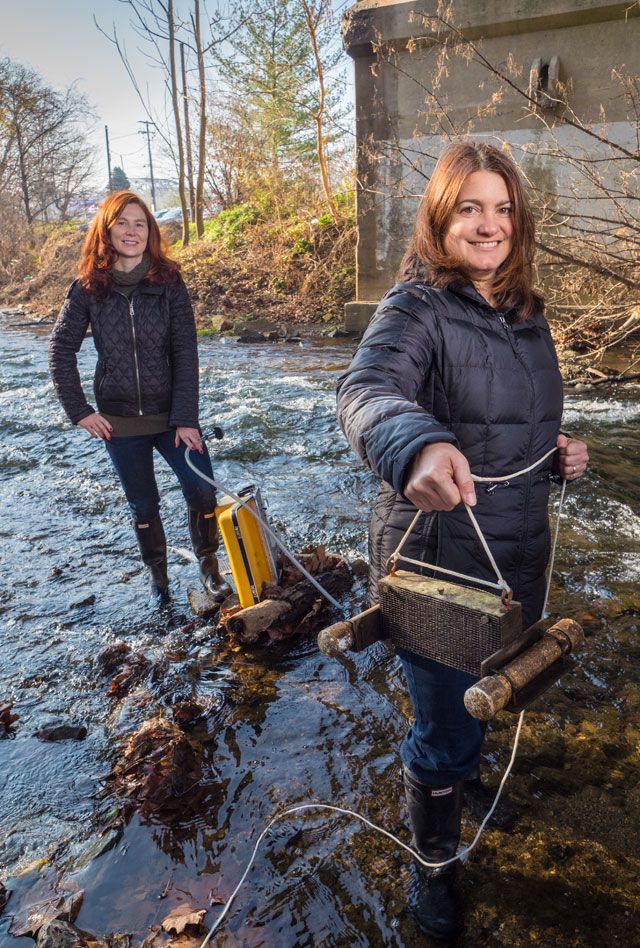Associate Professor Kristen Jellison of civil and environmental engineering, and Assistant Professor Sabrina Jedlicka of materials science and engineering, have teamed up to make monitoring water for a well-known parasite less expensive and far more effective.
Cryptosporidium is a waterborne parasite responsible for a gastrointestinal disease that can be fatal for the elderly and immunocompromised individuals. Cryptosporidiosis has no medical cure, and since Cryptosporidium may not be completely removed/inactivated in municipal water treatment plants, monitoring contamination in source waters is necessary to identify public health risks and determine how best to protect the public from exposure.
Current methods for the detection of Cryptosporidium have several problems. "Point-in-time" sampling can easily miss the presence of Crypto, even if the parasite is present during the sampling process. Additionally, the recovery of the parasite from filter membranes is often low and extremely variable -- and also expensive, as filters cost around $130 each; the economics of this severely limits the scale and frequency of sampling, which adds yet another obstacle.
Jellison's and Jedlicka's new collaborative project in Cryptosporidium detection is supported by the NSF under the grant "Temporal Monitoring of Waterborne Contamination: An Engineered Substrate with Selective Cryptosporidium Adsorption Properties." To enable more efficient and effective Crypto testing, the team will engineer inexpensively-manufactured substrates that will, in essence, trap Cryptosporidium in its zygote stage, known as oocysts. Water will flow across substrates with micro-level surface features that are complementary to the shape of the oocysts, which will allow the substrates to snag oocysts as they float past.
"The goal of our research is to develop a synthetic surface to which the parasite will attach with a known and quantifiable efficiency, so that we can deploy this synthetic surface in water over a period of days -- sampling a larger volume of water over time -- for Cryptosporidiummonitoring," reports Jellison. "We think we can develop a surface that could be commercially produced for around $5, which would mean that utilities and water resource managers could sample more locations with greater frequency and obtain more reliable and comprehensive data about sources of the parasite in the watershed."
The wealth of data that these new filters would provide will help inform watershed management plans aimed to protect the public from exposure to this waterborne parasite.
The new project is in many ways an extension of previous work in both of the researchers' labs. For more than a decade, Jellison has focused her research on understanding the sources, fate, and transport of Cryptosporidium within watersheds -- including the discovery that Cryptosporidium does indeed attach to environmental biofilms, a finding of work supported by Jellison's 2006 NSF CAREER Award. Research in Sabrina's lab is centered on the novel development of new biomaterials, as wells as a variety of characterization methods, including the adaptation of non-traditional methods to biological problems. Her research revolves around biologically functional material design for use in a wide variety of applications.
"I am thankful to work at a university where collaboration across disciplines is not only accepted, but encouraged," says Jellison. "The work proposed for our NSF grant is a truly collaborative endeavor between environmental engineering and materials science. "We are able to tackle this problem in a unique way because we are combining our two sets of expertise," she continues. "Neither of us could do this work on our own, and I am very much looking forward to working with, and learning from, Sabrina as we continue this work over the next few years."
-- Talia Dunyak '16 is a student-writer with the P.C. Rossin College of Engineering and Applied Science.

